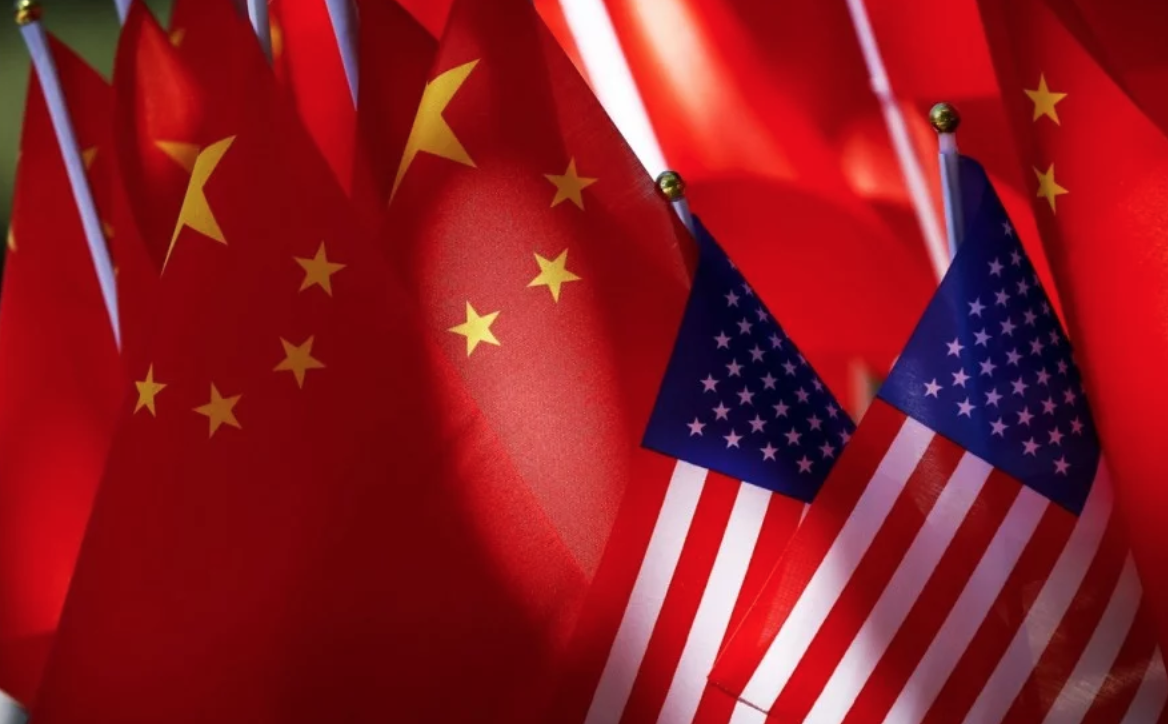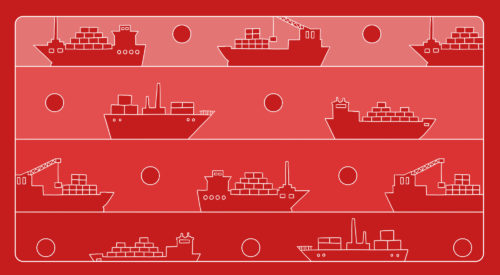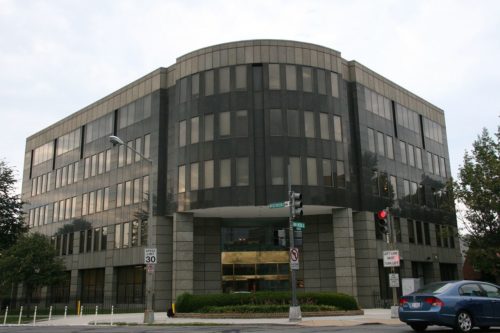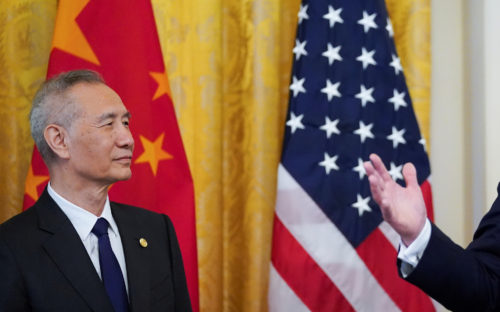Trade war, day 90: ‘This is political interference, not election interference’

The escalating tensions between the U.S. and China amid the trade war took an unexpected turn last week when Donald Trump accused China of election interference, citing only an ad the China Daily had placed in Iowa’s Des Moines Register that criticized the trade war and its impacts of American farmers.
- Homeland Security Secretary Kirstjen Nielsen has contradicted Trump, and said that there is “currently no indication that a foreign adversary intends to disrupt our election infrastructure,” Nextgov reports.
- But “American intelligence agencies are carrying out an assessment of whether Chinese operatives are targeting the U.S. election,” a “U.S. intelligence official familiar with the matter” informed Foreign Policy (porous paywall).
- Vice President Mike Pence is expected to make an address tomorrow, October 4, in which he will talk about Chinese influence in the U.S.
That same Foreign Policy article provides a good overview (porous paywall) of what exactly constitutes “election interference,” and the ways in which China has reportedly tried to interfere in a few elections around the world — including possibly the 1996 American election, but not the 2018 U.S. midterm, by all accounts other than Trump. A key quote from Abigail Grace, a former senior official who dealt with China policy on the National Security Council earlier this year:
This is political interference, not election interference…[that distinction] may seem semantic but in today’s hyper-partisan environment…precision is something that we should demand.
Earlier, BuzzFeed cybersecurity correspondent Kevin Collier — interviewed this summer on Sinica about China’s growing hacking power — reported, “Several threat intelligence companies told BuzzFeed News they hadn’t seen significant Chinese hacking campaigns aimed at US election services.” Rush Doshi and Robert Williams write on Lawfare that “China is indeed pursuing influence efforts in the United States and elsewhere, but these differ from Russia’s in important respects.”
Meanwhile, the mechanics of the trade war have not changed in a few weeks, since prospective last-minute negotiations to avert further tariffs were thrown into doubt and then canceled. The Wall Street Journal reports (paywall): “US, China may resume trade talks in December, White House says.” Those talks would happen on the sidelines of the G20 meeting in Buenos Aires, Argentina.
In addition, U.S. Secretary of State Mike Pompeo will visit Beijing on October 8, Reuters reports.
More trade war and U.S.-China articles:
- Military relations
Pentagon accuses China of dumping products to undermine U.S. security / Foreign Policy (porous paywall)
“A U.S. Defense Department-led review ordered by President Donald Trump concludes that the Chinese government is deliberately leveraging its monopoly on certain key natural resources to undermine the U.S. defense industrial base, sources told Foreign Policy ahead of the study’s release.” - Trade war and U.S. politics
Trump bets bashing China will sway voters before costs hit / Bloomberg (porous paywall)
“Almost 40 percent of voters in Wisconsin support tariffs on Chinese imports.”
Most Americans think China tariffs have been bad for jobs / Fortune
“According to a new Axios/Survey Monkey poll, while 42% think the trade dispute has been good for jobs, a narrow majority of 53% feel it has been bad. Those polled had a similar response to Trump’s trade policies overall, with 44% in approval and 53% disapproving.”
Tariffs that send a political message / NYT (porous paywall)
“Mapping the counties that voted for Mr. Trump in 2016 and those affected by China’s tariffs shows the extent to which Trump voters’ jobs rely on the products being targeted. Beijing hopes it can convince those voters — and their elected representatives — that the president’s trade war could hurt them.”
Activists, legislators fear bill could lead to profiling of Chinese students / HuffPost
“Rep. Francis Rooney (R-Fla.) recently introduced the Stop Higher Education Espionage and Theft Act of 2018, which would crack down on ‘geopolitical adversaries like China’ to prevent spying in U.S. higher education institutions.” - Rebranded NAFTA
Chinese, Asean suppliers could face fresh challenges under United States-Mexico-Canada Agreement / SCMP
“Under the United States-Mexico-Canada Agreement (USMCA) tighter country of origin rules and labour standards for the car and garment manufacturing industries mean production of those products could shift back to North America, which would be a blow to Asian producers.” - Chinese investment in the U.S.
Chinese investments in the US shrink 92 per cent as deals come under greater scrutiny amid trade war / SCMP
Read The China Project’s report on the same trend in the first half of 2018: Trade war update: Chinese investment in U.S. plummets, but yuan stays steady. - Huawei in Canada
U.S. intelligence officials question Canada’s ability to test China’s Huawei for security breaches / Globe and Mail
The “Americans were adamant that the Canadian and British approach to test Huawei equipment rather than ban it is inadequate to uncover potential back doors in the Chinese firm’s gear.” - Visa issue
Forget Stanford, Tsinghua beckons / Foreign Policy (porous paywall)
“China’s outreach to students in African and Asian countries, especially in developing regions where it has growing economic ties, so far has been highly successful.”
The impact of Chinese students in the US, charted and mapped / Quartz
Yesterday on The China Project: At least Trump didn’t ban all Chinese students — trade war, day 89. - Bonds
China to raise billions in US dollar debt as trade tensions persist / WSJ (paywall)
“China is planning to sell $3 billion in U.S. dollar bonds this month, wooing foreign investors at a time of heightened trade tensions with the U.S. and turbulence in its own stock market.” - Space supremacy
Why Donald Trump’s new Space Force can’t hurt China like Star Wars hurt the Soviet Union / SCMP
After the Trump administration rolled out its proposal for a new space-focused branch of the military, “the hawkish state-run tabloid Global Times told its readers the proposed military branch targeted China with the ‘same trick’ Ronald Reagan attempted in the 1980s with his ‘Star Wars’ space system to defend against Soviet nuclear missiles. Star Wars, officially known as the Strategic Defence Initiative (SDI), was never developed, but it cast a long shadow over Moscow’s political and economic calculations and arguably contributed to the 1991 breakup of the Soviet Union.”
But: “Beijing’s confidence about its technological development make it unlikely to be destabilized in the way the Soviet Union was by Star Wars.” - South China Sea
Australia concerned by China’s ‘aggressive tactics’ in South China Sea / SCMP
“Australia has expressed concerns about China’s ‘aggressive tactics’ in the South China Sea after a Chinese navy destroyer sailed within yards of an American warship on the weekend. Christopher Pyne, Australia’s defense minister, said the Morrison government would view any use of intimidation in the region as ‘destabilizing and potentially dangerous.’”
Photos show confrontation between USS Decatur and a Chinese navy warship in South China Sea / gCaptain - Commentary
Donald Trump is wrong: China is not Mexico / by Martin Wolf in FT (paywall)
“In the end, the fall in China’s GDP in such a trade war would be less than 2 percent, other things equal. This is about four month’s growth. Moreover, it would not be hard for China to offset such a loss of demand.” - WTO
Epic Airbus-Boeing fight signals long US-China trade war ahead / Bloomberg (porous paywall)
“For the better part of two decades, the U.S. and EU have battled at the World Trade Organization over aircraft makers Boeing Co. and Airbus SE… Now as America and China engage in a volley of tariffs, the inability of the U.S. and EU to resolve their dispute offers a key lesson for the burgeoning trade war: It’s going to be long and hard-fought.”
Previously in The China Project’s trade war coverage:
At least Trump didn’t ban all Chinese students — trade war, day 89






